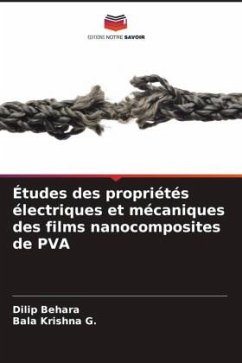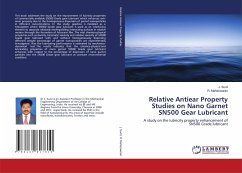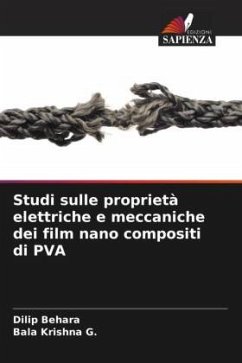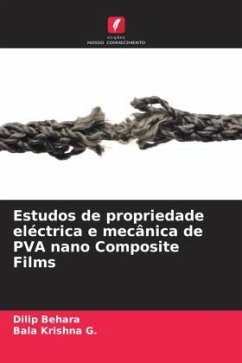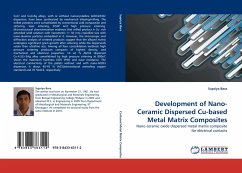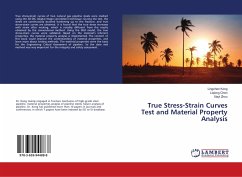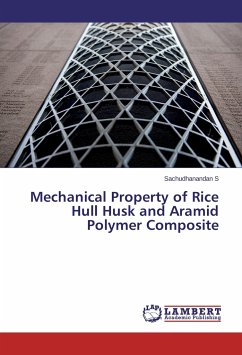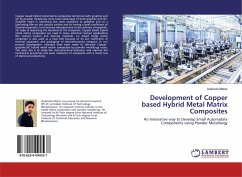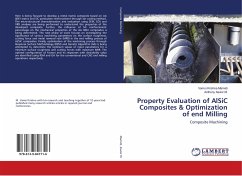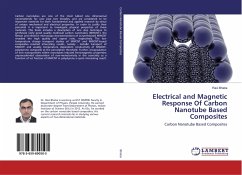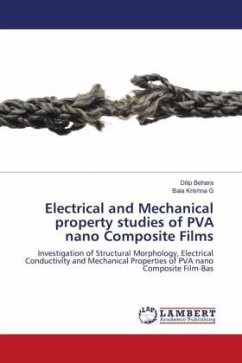
Electrical and Mechanical property studies of PVA nano Composite Films
Investigation of Structural Morphology, Electrical Conductivity and Mechanical Properties of PVA nano Composite Film-Bas
Versandkostenfrei!
Versandfertig in 6-10 Tagen
29,99 €
inkl. MwSt.

PAYBACK Punkte
15 °P sammeln!
This book reports structural, electrical and mechanical properties of nanocomposite films of PANI/TiO2-PVA composites with varying weight percentages of PANI-TiO2 nanoparticles. The synthesized materials were characterized by using XRD, SEM and FTIR. Electrical properties have been evaluated for nano PANI/TiO2-PVA composites. These properties were observed to be strongly dependent upon applied frequency and PANI-TiO2 filler content. Dielectric constant decreases with increase in frequency and decreases with increase in filler concentration, AC conductivity increases with frequency and dielectr...
This book reports structural, electrical and mechanical properties of nanocomposite films of PANI/TiO2-PVA composites with varying weight percentages of PANI-TiO2 nanoparticles. The synthesized materials were characterized by using XRD, SEM and FTIR. Electrical properties have been evaluated for nano PANI/TiO2-PVA composites. These properties were observed to be strongly dependent upon applied frequency and PANI-TiO2 filler content. Dielectric constant decreases with increase in frequency and decreases with increase in filler concentration, AC conductivity increases with frequency and dielectric loss also increases with frequency and decreases with increase in nanofiller concentration. Results carried out of the fabricated nanocomposites, the nanocomposite film containing 40 wt. % PANI-TiO2 materials is ideally suited for microelectronic and anticorrosion applications because of its low dielectric constant and low dielectric losses at higher frequencies. The results of present work improvements in various mechanical properties such as elastic modulus, toughness, and tensile strength were observed with PANI/TiO2-PVA polymer matrix.



